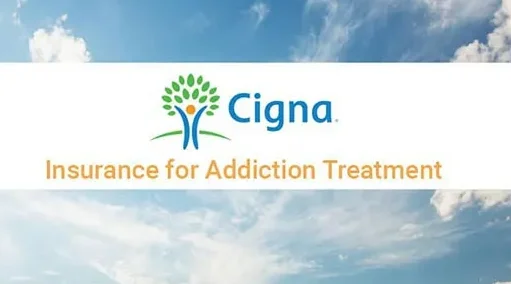Finding the Right Drug Rehab that Accepts Cigna: A Comprehensive Guide
Understanding Cigna Insurance Coverage for Drug Rehab
What is Cigna Insurance?
Drug Rehab that Accepts Cigna is a leading health insurance provider in the United States, offering a wide range of coverage options, including mental health and substance abuse services.
How Does Cigna Cover Drug Rehab?
Cigna provides coverage for drug rehab treatment, but the extent of coverage can vary depending on the individual’s plan, the type of treatment, and whether the facility is in-network or out-of-network.
In-network vs. Out-of-network Facilities
In-network facilities have negotiated rates with Cigna, which typically results in lower out-of-pocket costs for the insured individual. Out-of-network facilities may still be covered, but the costs may be higher.
Coverage Limits and Requirements
Cigna may have specific coverage limits and requirements for Drug Rehab that Accepts Cigna treatment, such as pre-authorization requirements or limits on the number of days covered for residential treatment.
The Importance of Choosing the Right Drug Rehab Facility
Why Choosing the Right Facility Matters
Selecting the right drug rehab facility is crucial for ensuring effective treatment and long-term recovery. Factors such as the treatment approach, staff expertise, and facility amenities can significantly impact the individual’s experience and outcomes.
Factors to Consider When Selecting a Rehab Center
Several factors should be considered when choosing a drug rehab facility, including:
Treatment Approaches and Specializations
Different rehab centers may offer various treatment approaches, such as cognitive-behavioral therapy, holistic therapy, or medication-assisted treatment. It’s essential to find a facility that aligns with the individual’s needs and preferences.
Location and Environment
The location and environment of the rehab facility can influence the individual’s comfort level and sense of safety. Some individuals may prefer a serene, secluded setting, while others may prefer a more urban environment.
Amenities and Services Provided
Rehab facilities may offer a range of amenities and services, such as private accommodations, recreational activities, and complementary therapies like yoga or acupuncture. These amenities can enhance the overall treatment experience and support the individual’s well-being.
How to Find Drug Rehab Centers That Accept Cigna Insurance
Researching In-network Facilities
Cigna’s website or customer service representatives can provide a list of in-network Drug Rehab that Accepts Cigna facilities in the individual’s area. Researching these facilities and comparing their services, reviews, and accreditation can help narrow down the options.
Utilizing Cigna’s Provider Network Tools
Cigna offers online tools and resources to help members find in-network providers, including drug rehab facilities. These tools typically allow users to search by location, specialty, and other criteria to find providers that accept Cigna insurance.
Seeking Recommendations and Referrals
Asking for recommendations from healthcare providers, therapists, or trusted friends and family members can also help identify reputable drug rehab facilities that accept Cigna insurance. Personal referrals can provide valuable insights into the quality of care and the overall experience at a particular facility.
Questions to Ask When Contacting Drug Rehab Facilities
Verification of Cigna Coverage
Before committing to a Drug Rehab that Accepts Cigna facility, it’s essential to verify that they accept Cigna insurance and understand the extent of coverage for the individual’s specific plan.
Treatment Options Available
Inquire about the types of treatment programs and therapies offered at the facility, as well as any specialized services for co-occurring mental health disorders or specific substance abuse issues.
Staff Credentials and Experience
Ask about the qualifications and experience of the treatment team, including therapists, counselors, and medical professionals. It’s crucial to ensure that the facility employs licensed and experienced staff members who can provide high-quality care.
Success Rates and Program Effectiveness
Request information about the facility’s success rates and outcomes for individuals who have completed their programs. While success rates can vary, reputable rehab centers should be able to provide data on their treatment outcomes and long-term recovery rates.
Tips for Navigating the Admission Process
Understanding Insurance Verification Procedures
Work closely with the rehab facility and Cigna representatives to navigate the insurance verification process, including obtaining pre-authorization if required and understanding any out-of-pocket costs.
Gathering Necessary Documentation
Be prepared to provide necessary documentation, such as insurance cards, identification, and medical records, during the admission process. This can help streamline the process and ensure that all necessary information is on file.
Communicating with Insurance and Rehab Staff
Maintain open communication with both the insurance provider and the rehab facility throughout the admission process. If there are any questions or concerns about coverage or treatment options, don’t hesitate to ask for clarification or assistance.
What to Expect During Drug Rehab Treatment
Initial Assessment and Evaluation
Upon admission to the rehab facility, the individual will undergo a comprehensive assessment to determine their specific needs, challenges, and treatment goals. This assessment may include medical, psychological, and social evaluations.
Customized Treatment Plans
Based on the initial assessment, a customized treatment plan will be developed to address the individual’s unique needs and circumstances. Treatment plans may include a combination of individual therapy, group counseling, medication management, and other interventions.
Types of Therapies Offered
Rehab facilities may offer a variety of therapeutic modalities to address addiction and related issues, such as behavioral therapy, experiential therapy, family therapy, and relapse prevention skills training.
Support Groups and Aftercare Planning
Throughout the treatment process, individuals will have access to support groups and peer support networks to help them connect with others who are facing similar challenges. Additionally, rehab facilities typically provide aftercare planning to help individuals transition back to their daily lives and maintain sobriety after treatment.
Overcoming Challenges in Drug Rehab with Cigna Insurance
Navigating Coverage Limitations
While Cigna insurance may cover a portion of Drug Rehab that Accepts Cigna treatment costs, there may be limitations on the type and duration of treatment covered. It’s essential to understand these limitations and explore alternative options if needed.
Appealing Denials or Disputes
If a claim for Drug Rehab that Accepts Cigna treatment is denied or disputed by Cigna, individuals have the right to appeal the decision. Working with the rehab facility and insurance representatives can help resolve any issues and ensure that the individual receives the necessary care.
Exploring Alternative Payment Options
In some cases, individuals may need to explore alternative payment options for drug rehab treatment, such as payment plans, sliding-scale fees, or scholarships. Rehab facilities may offer financial assistance or referrals to programs that can help individuals access treatment, even if they don’t have insurance coverage or if their insurance benefits are limited.
Success Stories: Real-life Experiences of Individuals Who Found Rehab with Cigna
Testimonials from Recovering Individuals
Sharing testimonials from individuals who have successfully completed drug rehab treatment with Cigna insurance can provide hope and inspiration to others who are considering seeking help. These success stories can highlight the transformative power of treatment and the support provided by Cigna insurance.
How Cigna Insurance Supported Their Recovery Journey
Individuals who have benefited from Cigna insurance coverage for drug rehab can share their experiences of navigating the treatment process, accessing necessary services, and overcoming challenges with insurance coverage. Their stories can demonstrate the value of having insurance support during the recovery journey.
Maintaining Sobriety After Rehab
Creating a Relapse Prevention Plan
Following completion of drug rehab treatment, individuals are encouraged to develop a relapse prevention plan to help them maintain sobriety and avoid triggers and temptations. This plan may include strategies for managing stress, coping with cravings, and staying connected to support networks.
Utilizing Cigna’s Resources for Continued Support
Cigna offers a variety of resources and support services to help individuals maintain their recovery after rehab, including access to mental health services, online tools and resources, and support hotlines. Taking advantage of these resources can provide ongoing support and encouragement on the journey to long-term sobriety.
Engaging in Aftercare Services and Community Support
Many drug rehab facilities offer aftercare programs and support groups to help individuals transition back to their daily lives and maintain their recovery. These programs may include ongoing therapy, peer support groups, and alumni events to help individuals stay connected and accountable in their sobriety.
The Role of Family and Loved Ones in the Recovery Process
Educating Family Members About Addiction
Family members and loved ones play a crucial role in supporting individuals in their recovery from addiction. Educating family members about addiction, its effects, and how they can best support their loved one can strengthen family bonds and create a supportive environment for recovery.
Involvement in Therapy and Support Groups
Family therapy and support groups can provide opportunities for family members to address issues related to addiction, improve communication and relationships, and learn coping strategies for supporting their loved one’s recovery journey.
Rebuilding Relationships and Establishing Healthy Boundaries
Recovery from addiction often involves rebuilding trust and repairing relationships that may have been strained by substance abuse. Setting healthy boundaries, communicating openly, and practicing forgiveness and understanding can help individuals and their loved ones heal and move forward together.
Addressing Stigma Surrounding Addiction and Treatment
Breaking Down Misconceptions About Rehab
Stigma surrounding addiction and treatment can prevent individuals from seeking help and accessing the care they need. By dispelling myths and misconceptions about rehab and addiction, we can help reduce stigma and encourage more people to seek treatment without shame or judgment.
Promoting Compassion and Understanding
Addiction is a complex and multifaceted disease that affects individuals from all walks of life. By promoting compassion, empathy, and understanding, we can create a more supportive and inclusive environment for individuals struggling with addiction and their loved ones.
Encouraging Open Dialogue and Support
Open dialogue and support can play a crucial role in destigmatizing addiction and fostering a culture of acceptance and support. By encouraging honest conversations about addiction, treatment, and recovery, we can help break down barriers and create a community where individuals feel empowered to seek help and support.
The Future of Addiction Treatment and Insurance Coverage
Trends in Rehab Accessibility and Affordability
Access to affordable, evidence-based addiction treatment is essential for addressing the ongoing opioid epidemic and other substance abuse issues. Trends in rehab accessibility and affordability may include increased availability of telehealth services, expanded insurance coverage, and innovative treatment approaches.
Advancements in Evidence-Based Treatment Methods
Advances in addiction research and treatment methods continue to improve outcomes for individuals struggling with substance abuse. From medication-assisted treatment to personalized therapy approaches, ongoing advancements in addiction treatment are helping individuals achieve lasting recovery and reclaim their lives.
Policy Changes Affecting Insurance Coverage for Addiction Services
Policy changes at the state and federal levels can have a significant impact on insurance coverage for addiction services. Advocacy efforts to expand insurance coverage, improve parity laws, and increase funding for addiction treatment and prevention programs are critical for addressing the growing need for addiction services in our communities.
Resources for Further Assistance and Information
National Helplines and Hotlines
National helplines and hotlines provide confidential support, information, and referrals for individuals struggling with addiction and their loved ones. These resources are available 24/7 and can connect individuals with local treatment options and support services.
Online Support Communities
Online support communities and forums offer a safe and supportive space for individuals to connect with others who are facing similar challenges. These communities provide peer support, encouragement, and practical advice for navigating the recovery journey.
Government Agencies and Nonprofit Organizations
Government agencies and nonprofit organizations play a crucial role in addressing addiction and providing support services to individuals and families. From substance abuse treatment programs to prevention initiatives and advocacy efforts, these organizations work to promote public health and improve access to care for all individuals affected by addiction.
Personal Responsibility in Seeking Help for Addiction
Empowering Individuals to Take the First Step
Seeking help for addiction takes courage and determination. By empowering individuals to take the first step towards recovery, we can help break the cycle of addiction and support individuals in reclaiming their lives.
Overcoming Fear and Shame
Fear and shame can often prevent individuals from seeking help for addiction. By creating a supportive and nonjudgmental environment, we can help individuals overcome these barriers and access the care and support they need to heal.
Embracing Hope and Healing
Recovery from addiction is possible, and every individual deserves the chance to live a healthy, fulfilling life. By offering hope, encouragement, and support, we can help individuals embrace the journey of recovery and find healing from addiction.
Conclusion
Finding a drug rehab facility that accepts Cigna insurance can be a crucial step towards recovery for individuals struggling with addiction. By understanding Cigna’s coverage options, researching suitable facilities, and actively participating in the treatment process, individuals can embark on a journey towards lasting sobriety with the support of their insurance provider.
FAQs
Does Cigna Insurance Cover All Types of Addiction Treatment?
Cigna typically covers a range of addiction treatment services, including detoxification, inpatient rehabilitation, outpatient therapy, and medication-assisted treatment (MAT).
Are There Any Restrictions on Which Rehab Centers I Can Choose with Cigna Insurance?
While Cigna has a network of preferred providers, coverage may vary depending on whether the facility is in-network or out-of-network. It’s essential to verify coverage and explore all available options.
What Should I Do If My Cigna Insurance Claim for Rehab is Denied?
If your claim for rehab services is denied, you have the right to appeal the decision. Work closely with your rehab facility and Cigna representative to gather necessary documentation and submit an appeal.
Can I Use Cigna Insurance to Cover the Cost of Medication-Assisted Treatment (MAT) for Opioid Addiction?
Yes, Cigna typically covers MAT for opioid addiction, including medications such as methadone, buprenorphine, and naltrexone, along with counseling and support services.
Is Cigna Insurance Accepted at Luxury Rehab Facilities?
Some luxury rehab facilities may accept Cigna insurance, but coverage may vary depending on individual plans and facility agreements. It’s essential to verify coverage and discuss payment options with the facility.







